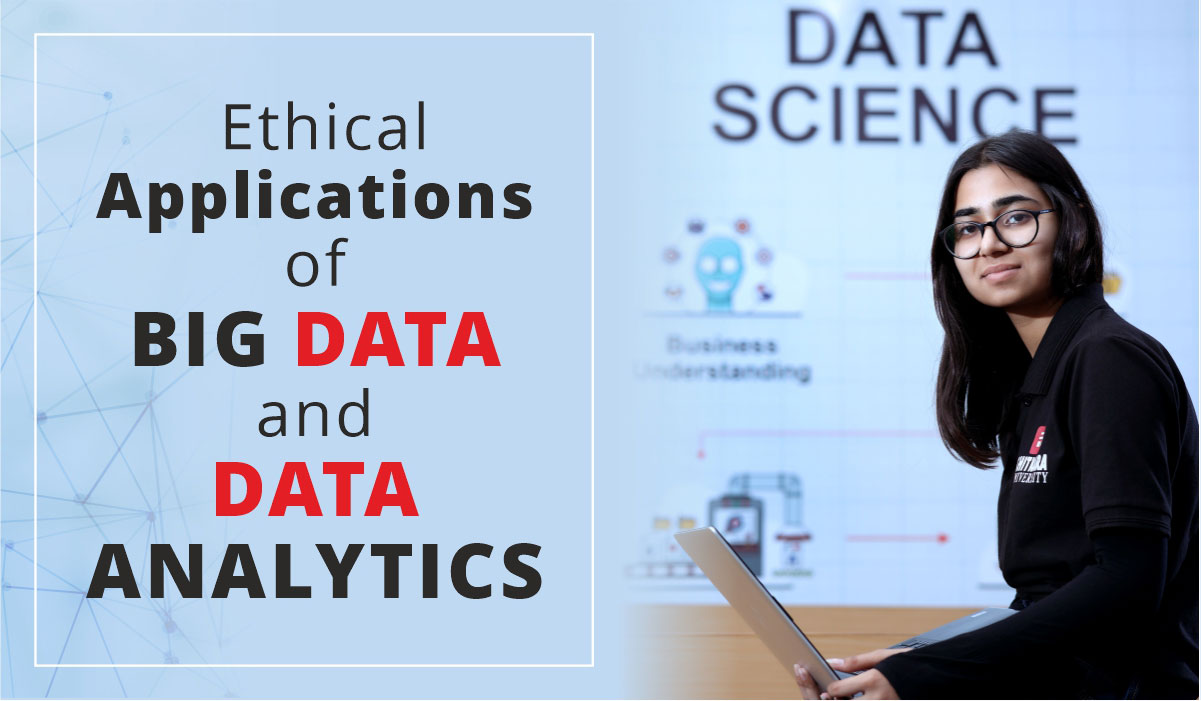How the digital world functions often make us think that we are being followed all the time. There is a persistent feeling that someone is meticulously monitoring your every move and all your activities on the internet.
In the physical world, these are the occurrences that can make you feel scared, but in the world of the internet, you cannot know what is happening or how to make more sense of what is happening. The truth is that we are all being followed in the era of big data, and the fact that this practice is as stealthy as a stalker is pretty undecided.
At the centre of all this are the ethics with which big data functions. Big data has managed to facilitate the rise of new technologies such as IoT devices and AI, which can further generate, analyse, and use data at a quicker, larger, and more difficult scale than most humans.
When big data is used correctly, it can shape the future for the better, which is why big data ethics are very important. In this blog, we will try to understand the ethical applications of big data and data analytics.
Also, read: What is Data Science & Analytics, Job and Future Scope
Informed Consent: To give consent means that you have offered uncensored permission for something to happen to you. Informed consent is a careful, ethical, and respectful way of offering consent. It requires the data collectors to make an important effort to give participants a reasonable understanding of how their data should be dealt with.
In the past, informed consent for data collection was taken for a single study. However, big data has made this form of consent impossible, as the entire purpose of big data studies, analytics, and mining is to reveal patterns between data points considered inconceivable.
Consent can be informed, as neither the data collector nor the study participant knows or understands what will be garnered from the data and how it will be used. Revisions to the standard of informed content have already been introduced. The first is known as broad consent, and the second is called tied consent.
Privacy: The ethics of privacy may include different concepts, including liberty, security, autonomy, data protection, and data exposure. The concepts of big data can be understood by understanding the condition of privacy, the right to privacy, and the loss of privacy and invasion.
The scale of big data can pose a serious concern as many traditional privacy processes cannot protect sensitive data, which has led to an exponential increase in data leaks and cybercrime.
One of the growing concerns is the increasing analytical power of big data and how it affects privacy when personal information from different digital platforms is mined to create a full picture of a person without any explicit consent.
In case someone applies for a job, then information can be gained about them from their digital data footprint for identifying political learnings, social life, sexual orientation, etc. The data can be used to reject an employment application even though the information may not have been offered for judgment by the applicant.
Ownership: Ownership in terms of big data is to steer away from traditional or legal understanding as an exclusive right to use, possess, and dispose of the property. Ownership can refer to the redistribution of data, changes in data, and the ability to benefit from data innovations.
There was a time when legislators ruled that data was not merely a property or a commodity. If it gets stolen, the belief offers little protection or compensation to internet users and consumers, who can offer valuable information to companies without any benefits.
The ownership of data can be divided into two categories: the right to control data and the right to benefit from data. As opposed to common belief, the people who generate data do not always own the data. Big data is no less important than big money in the present world. Most internet users feel that the current balance is inclined against them when it comes to ownership of data and the transparency of companies that can use and profit from data that may be shared further.
Algorithm Bias and Objectivity: Algorithms are made by humans, and the data sets that they study are chosen and prepared by humans. Humans have biases. There has been significant evidence suggesting that human prejudices can infect technology and algorithms while impacting the lives and freedom of humans.
The algorithm bias has become an important part of everyday life and is something that is also documented as impacting personal psyches and thought processes. This happens when we perceive our reality to be a reflection of what we look at on the internet.
What we may see as a tailored reality created by the algorithm and personalised using past viewing habits is that the algorithm shows content that we are likely to enjoy or agree with and discards the rest.
Big Data Divide: The big data divide seeks to define the present state of data access, but the understanding and mining capabilities of big data are completely isolated within the hands of some corporations. This divide creates haves and have-nots in big data while excluding those who lack financial, educational, and technological resources.
The big data divide separates individuals from data that can be highly valuable to their well-being, and despite the growing industry of applications that use data to improve lives, there is no way for people to mine their data or connect potential data silos.
There is an ethical problem with who owns the data that is generated and how it can be modified, analysed, and benefited from. The data divide can create further problems when we think of algorithm bias, which places an individual in categories based on a culmination of data that people cannot access.
Also, read: Analyzing the Potential Impact of Data Science for the Future
Conclusion
Big data ethics are complex and constantly evolving. At the centre, the aim is to ensure that all internet users have the right to be protected online and that businesses can speed up data protection.
The change was seen as a challenge to the ability to do the job with many existing tactics used for lead generation, email marketing, and targeted advertising. Customer centricity is about creating the best experience while adhering to big data ethics standards that can improve customer satisfaction rates for marketers.






